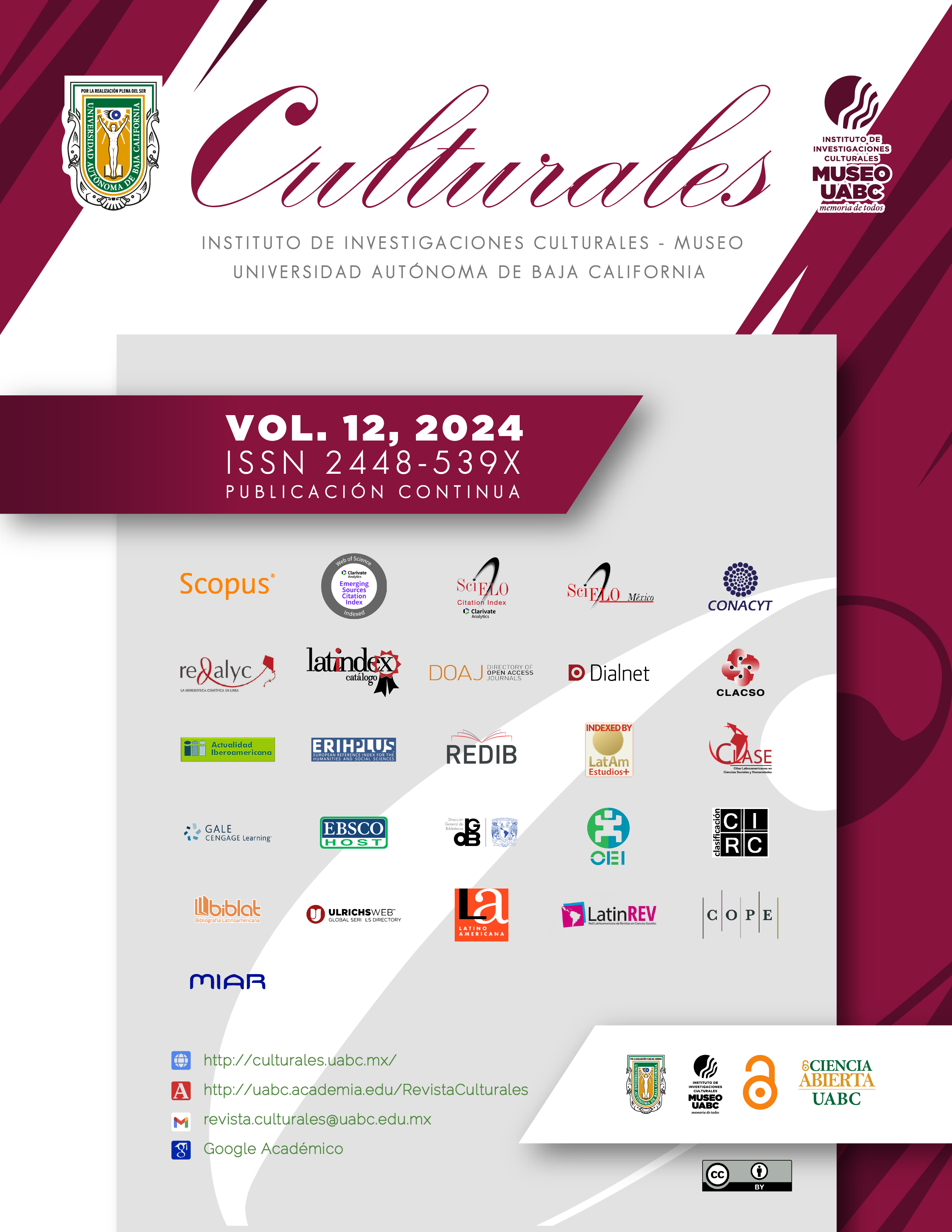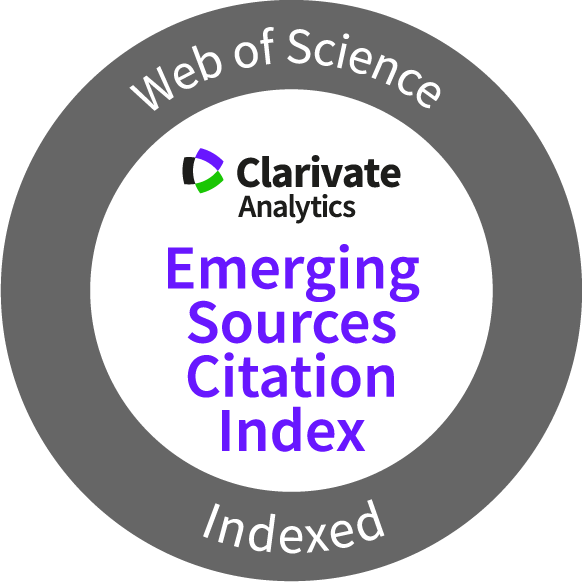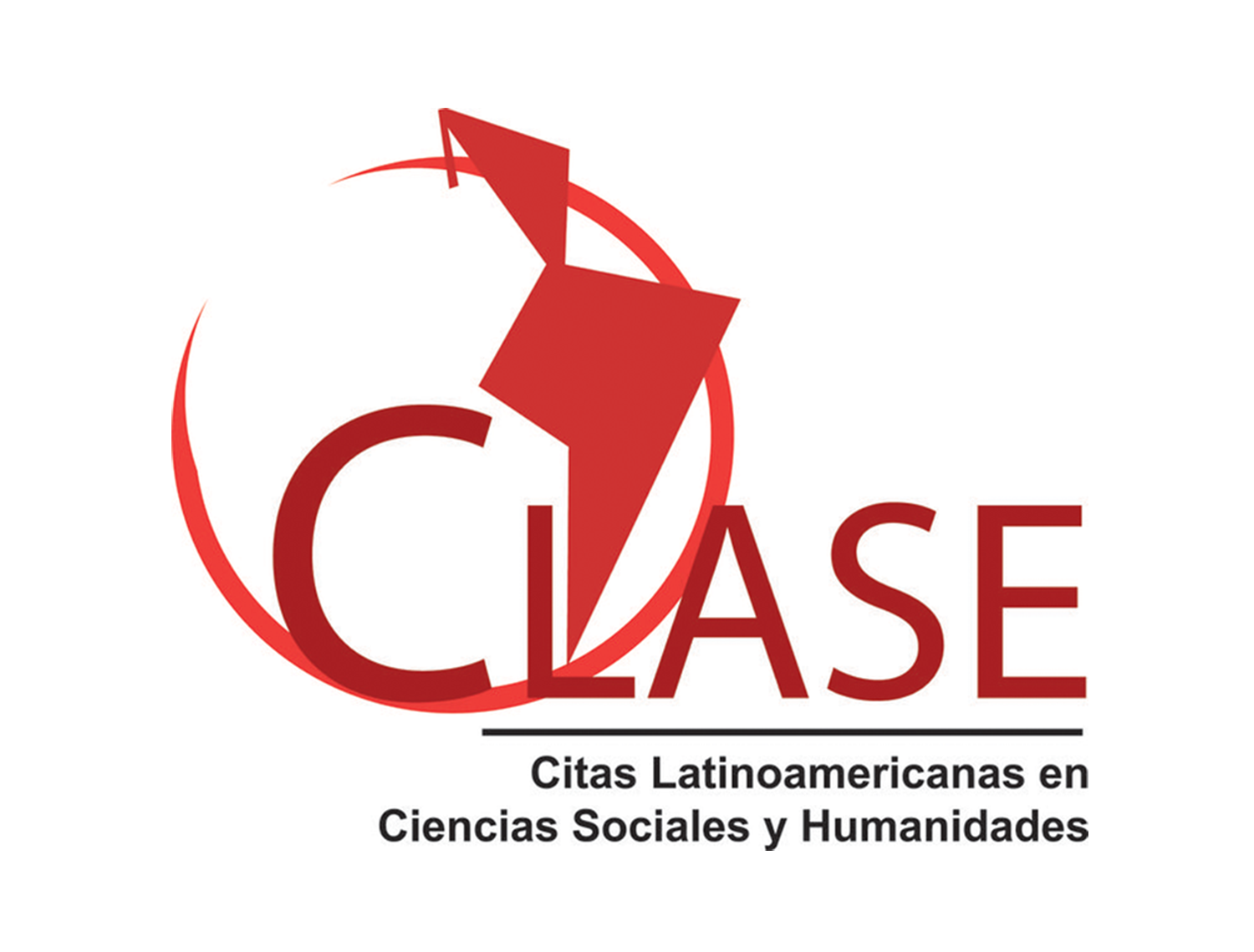Building the human rights religion: United Nations discourse on climate change
DOI:
https://doi.org/10.22234/recu.20241201.e878Keywords:
religion, mythology, human rights, climate change, linguistic researchAbstract
This article studies how the normative paradigm of human rights is being constructed based on the United Nations discourse on climate change, one of the most pressing global problems of today. This paradigm is conceptualized as religion and emphasis is placed on two constructive modes: the discursive mobilization of myths, aimed at sacralizing elements of the religion of rights; and how it competes symbolically with civil religion (Rousseau). To this end, a narrative analysis of a corpus of oral interventions by the secretary general in the first four months of 2023 was carried out. As a result, this discourse conveys the myth of the biblical Exodus, updated in a climatic Exodus, which sacralizes the UN; and that, despite an apparent critique of state-centric power structures, the religion of rights is subordinated to civil religion, which raises doubts about its construction.
Downloads
References
Asamblea General (AG) (2015). Transformar nuestro mundo: la Agenda 2030 para el Desarrollo Sostenible. A/RES/70/1.
Asamblea General (AG) (2022). El derecho humano a un medio ambiente, limpio, saludable y sostenible. A/76/L.75.
Asamblea General (AG) (2023). Progresos realizados para lograr los Objetivos de Desarrollo Sostenible: hacia un plan de rescate para las personas y el planeta. A/78/80-E/2023/64.
Aguirre, R. (2024). La utilización política de la Biblia. Verbo Divino.
Aínsa, F. (2004). Utopías contemporáneas de América Latina. América: Cahiers du CRICCAL, 32, 9-33.
Associated Press (2020, 21 de enero). Trump at Davos: we must reject ‘prophets of doom’. YouTube [Archivo de datos]. https://www.youtube.com/watch?v=IBbBMVZHHSw
Barranco, B. (2023). Las reformas jurídicas en materia religiosa y la laicidad bajo acecho. En P. Capdevielle y P. Salazar (Coords.), El Estado laico mexicano a 30 años de la reforma constitucional (pp. 41-58). IIJ-UNAM.
Barthes, R. (1972). Mythologies. Noonday.
Berger, P. y Luckmann, T. (2012). La construcción social de la realidad. Amorrortu.
Beriain, J. (2014). Imaginarios postaxiales y resacralizaciones modernas. Revista Latina de Sociología, 4, 31-52.
Biblia de Jerusalén. (1998). Porrúa.
Bloch, E. (1995). The principle of hope. MIT.
Brown, R. (2002). Bases intelectuales de un programa en estudios socioculturales. Revista de Estudios Sociales, 13, 36-39.
Bourdieu, P. (2008). El lenguaje autorizado: las condiciones sociales de la eficacia del discurso ritual. En P. Bourdieu, ¿Qué significa hablar? Economía de los intercambios lingüísticos (pp. 85-97). Akal.
Cardenal, R. (2015). Mons. Romero: ‘Padre de los pobres’. Un beato muy incómodo. ECA: Estudios Centroamericanos, 70 (742), 301-319. https://doi.org/10.51378/eca.v70i742.3317
Carretero, A. (2006). La persistencia del mito y de lo imaginario en la cultura contemporánea. Política y Sociedad, 43(2), 107-126.
Carretero, A. (2009). La trascendencia inmanente: un concepto para comprender la relación entre ‘lo político’ y ‘lo religioso’ en las sociedades contemporáneas. Papeles del CEIC, 48, 1-27. https://doi.org/10.1387/pceic.12255
Clandinin, D. (Ed.) (2007). Handbook of narrative inquiry. Sage.
Cole, W. (2012). A civil religion for world society: the direct and diffuse effects of human rights treaties, 1981-2007. Sociological Forum, 27(4). https://doi.org/10.1111/j.1573-7861.2012.01363.x
Comte, A. (1980). Discurso sobre el espíritu positive. Alianza.
Compte, G. (2021). Laicidad y religión civil. UNAM.
Compte, G. (2022). Utopía y religión: la construcción social de lo-trascendente. Diferencia(s). Revista de Teoría Social Contemporánea, 14, 135-159.
Cubillos-Quintero, L. (2015). Los estudios socioculturales como estrategia académica para la comprensión de las problemáticas ambientales del territorio. Revista del Doctorado Interinstitucional en Ciencias Ambientales, 5, 36-42.
Daiute, C. (2014). Narrative inquiry: a dynamic approach. Sage.
Elliott, M. (2007). Human rights and the triumph of the individual in world culture. Cultural Sociology, 1(3), 343-363. https://doi.org/10.1177/1749975507082052
Expansión (s/f). ¿Qué países son los que más contaminan? Expansión. https://datosmacro.expansion.com/analisis/actualidad/20161018/contaminacion-co2
Fagan, M. (2017). Who’s afraid of the ecological apocalypse? Climate change and the production of the ethical subject. The British Journal of Politics and International Relations, 19(2), 1-20. https://doi.org/10.1177/1369148116687534
Féron, H. (2014). Human rights and faith: a ‘world-wide secular religion’? Ethics & Global Politics, 7(4), 181-200. https://doi.org/10.3402/egp.v7.26262
Fitzpatrick, P. (2007). Is humanity enough? The secular theology of human rights. Law, Social Justice & Global Development Journal (LGD), 1, 1-14.
Foust, C. y Murphy, W. (2009). Revealing and reframing apocalyptic tragedy in global warming discourse. Environmental Communication, 3(2), 151-167. https://doi.org/10.1080/17524030902916624
Frye, N. (1982). The great code. The Bible and literature. Harcourt Brace Jovanovich.
Gago, P. (2001). La nueva labor socializadora de los derechos humanos: los derechos humanos entre la desocialización producida por el relativismo y la indiferencia y el ideal humanitario universal. Anuario de Derechos Humanos, 2, 311-364.
Garzón I. (2014). Postsecularidad: ¿un nuevo paradigma de las ciencias sociales? Revista de Estudios Sociales, 50, 101-112. http://dx.doi.org/10.7440/res50.2014.11
Gee, J. y Handford, M. (Eds.) (2012). The Routledge handbook on discourse analysis. Routledge.
Gramsci, A. (2000). Cuadernos de la cárcel. Era y BUAP.
Gutwirth, S. y De Hert, P. (2021). Human rights: a secular religion with legal crowbars. From Europe with hesitations. National Law School of India Review, 33(2), 420-462.
Herman, L. y Vervaeck, B. (2019). Handbook of narrative analysis. Nebraska.
Hernández, A. (2020). Los estudios socioculturales: un análisis al fundamento hegemónico de los derechos humanos. Revista de Derechos Humanos y Estudios Sociales, 23, 121-146.
IPCC (2023). Summary for Policymakers. En H. Lee y J. Romero (Eds.), Climate Change 2023: Synthesis Report. Contribution of Working Groups I, II and III to the Sixth Assessment Report of the Intergovernmental Panel on Climate Change (pp. 1-34). IPCC.
Ivic, S. (2023). The United Nations narrative of climate change: the logic of Apocalypse. Cultura. International Journal of Philosophy of Culture and Axiology, 20(1), 15-26.
Jackson, P. (s/f). De Estocolmo a Kyoto: breve historia del cambio climático. https://www.un.org/es/chronicle/article/de-estocolmo-kyotobreve-historia-del-cambio-climatico
Keesing, R. (2010). Teorías de la cultura. En H. Velasco (Comp.), Lecturas de antropología social y cultural (pp. 15-51). UNED.
Lefebvre, A. (2013). Human rights as a way of life. Stanford.
Malachuk, D. (2010). Human rights and a post-secular religion of humanity. Journal of Human Rights, 9(2), 127-142. https://doi.org/10.1080/14754831003761647
Mannheim, K. (2004). Ideología y utopía. FCE.
Maquiavelo, N. (2010). El príncipe. Akal.
Martínez, M. (2022). Significación de los estudios socioculturales para el cumplimiento de los objetivos para el desarrollo sostenible. Revista Universidad y Sociedad, 14(1), 564-575.
Marx, K. y Ruge, A. (1970). Los anales franco-alemanes. Martínez Roca.
Methmann, C. y Rothe, D. (2012). Politics for the day after tomorrow: The logic of apocalypse in global climate politics. Security Dialogue, 43(4), 323-344.
Moyn, S. (2010). The last utopia: human rights in history. Cambridge.
ONU (2023). Assessment of Member States’ advances to the Working Capital Fund for 2023 and contributions to the United Nations regular budget for 2023. ST/ADM/SER.B/1052.
Owen, J. (2005). Human rights as civil religion: the glue for global governance? En M. Lederer y P. Müller (Eds.), Criticizing global governance (pp. 221-241). Palgrave Macmillan.
Páez, A. (2010). Y después del CO2 ¿qué?: una revisión de la construcción social del cambio climático. Revista del Magíster en Análisis Sistémico Aplicado a la Sociedad, 22, 1-30.
Panotto, N. (2015). Heterotopías, nomadismos e identidades populares: una relectura del concepto de pueblo desde el relato del éxodo en las teologías de la liberación. Horizontes Decoloniales, 1, 164-195.
Reinbold, J. (2017). Seeing the myth in human rights. Penn.
Rousseau, J.-J. (1997). El contrato social. Coyoacán.
Rousseau, J.-J. (1998). Discurso sobre el origen y los fundamentos de la desigualdad entre los hombres y otros escritos. Tecnos.
Scalone, L. (2014). Identidad y cultura en la construcción discursiva hegemónica del bicentenario del éxodo jujeño. Revista de Estudios Regionales y Mercado de Trabajo, 10, 181-209.
Schecter, D. (2005). Mythic structure theory: proposing a new framework for the study of political issues. Politics & Policy, 33(2), 221-241. https://doi-org.biblioteca-colmex.idm.oclc.org/10.1111/j.1747-1346.2005.tb00641.x
Schmitt, C. (2009). Teología política. Trotta.
Siegemund, A. (2021). Environmental sciences, apocalyptic thought, and the proxy of God. En J. Alber (Ed.), The apocalyptic dimensions of climate change (pp. 125-135). De Gruyter.
Stith, R. (2010). If Dorothy had not had Toto to pull back the Wizard's curtain: the fabrication of human rights as a world religion. Val. U. L. Rev., 44, 847-862.
Teruel, F. (2024). ¿Qué significa “liberación”? Hermenéutica de un concepto complejo en el discurso filosófico de Enrique Dussel. Revista Erasmus, 26, 1-31. https://doi.org/10.5281/zenodo.10797806
UNDP (2021). People’s climate vote: results. UNDP y Universidad de Oxford.
Velasco, D. (2014). Sentencias incumplidas: simulación del Estado a resoluciones de la Corte Interamericana. Xipe Totek, 90, 171-204.
Velázquez, M. (2014). El discurso hegemónico ambiental a través de organismos de cooperación y su influencia en las relaciones internacionales. Rev. Cient. Gen. José María Córdova, 12(13), 191-202.
Vliegenthart, D. (2020). (Re)introducing ‘secular religion’: on the study of entangled quests for meaning in modern Western cultures. Numen, 67, 256-279. https://doi.org/10.1163/15685276-12341575
Wodak, R. (2001). The discourse-historical approach. En R. Wodak y M. Meyer (Eds.), Methods of critical discourse analysis (pp. 63-94). Sage.
Published
How to Cite
Issue
Section
License
Copyright (c) 2024 Guillem Compte Nunes

This work is licensed under a Creative Commons Attribution 4.0 International License.
Culturales journal allows you to share, copy and redistribute the material in any medium or format; adapt, remix, transform, and build upon the material for any purpose, including commercially, by properly crediting the work and providing a link to the license indicating whether changes have been made.
Culturales journal is licensed under the Creative Commons Attribution 4.0 International License (CC BY 4.0)























